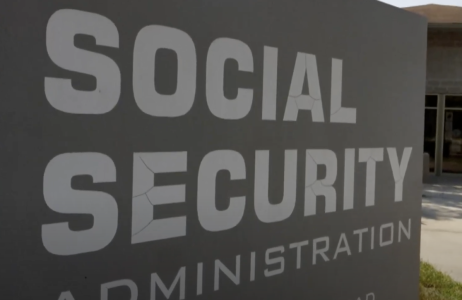Unexpected freeze on Social Security changes—Here’s how it can affect you
- Replies 1
In a surprising turn of events, the Social Security Administration (SSA) has put the brakes on a major policy overhaul that was poised to transform how millions of Americans interact with the agency.
Just days before the scheduled start, the SSA has listened to the voices of the public and advocacy groups, halting changes that would have ended phone services for routine Social Security matters.
The GrayVine is here to unpack what this means for you who may have been bracing for the impact of these changes.
The Planned Overhaul and Its Reversal
The now-frozen policy was part of a sweeping reform aimed at modernizing the SSA.
It would have required beneficiaries to either use online portals or make in-person visits for tasks such as benefits verification and direct deposit updates. This shift was set to take effect imminently, but it has been met with significant pushback.
Why the Change Matters
For the roughly 73 million Americans who rely on Social Security services, the proposed changes were more than just an inconvenience.
Advocates pointed out that the elimination of phone services would have hit older adults, low-income individuals, and those with mobility issues the hardest—especially those in rural areas who may not have easy access to field offices or the internet.

The SSA's decision to maintain phone access comes after a wave of public outcry and concern from lawmakers and advocacy groups.
Nancy LeaMond, AARP’s executive vice president and chief advocacy and engagement officer, told NPR that the initial proposal "would result in more headaches and longer wait times to resolve routine customer service needs."
She also criticized the rollout, saying it was implemented "on an impractical fast-track" and lacked public consultation.
The agency acknowledged the importance of the telephone as a “viable option to the public,” ensuring that beneficiaries will not be forced to adapt to new procedures on such short notice. Initially, the SSA had planned to discontinue the phone option on April 14.
Some context might help: Confirmation needed: New Social Security rule could impact how you access your benefits
"This includes Retirement, Survivors, and Auxiliary (Spouse or Child) benefits that SSA previously announced would require in-person identity proofing, in addition to Social Security Disability Insurance, Medicare, and SSI."
The halted policy was part of a broader restructuring effort under acting SSA Commissioner Lee Dudek, appointed by former President Donald Trump.
Both Trump and Elon Musk, head of the Department of Government Efficiency (DOGE), have raised concerns about alleged fraud within the SSA—a claim that Dudek has echoed in policy initiatives.
However, these claims and the subsequent policy changes have been met with skepticism and criticism.

Internal staff reductions, which have already led to service disruptions, were part of the planned cutbacks. The SSA revealed it would trim its workforce by 7,000 positions, bringing the total number of employees down to just 50,000 this year.
Reports of long lines and unanswered phone calls at field offices have underscored the challenges faced by the SSA and its beneficiaries.
Liz Huston, a White House spokesperson, has emphasized the administration's commitment to protecting Social Security and rooting out fraud, "Under President Trump's leadership, the Social Security Administration is taking bold steps to transform how they serve the public – improving frontline customer service, modernizing their technology, protecting beneficiaries and securing the integrity of their programs."
Meanwhile, Max Richtman of the National Committee to Preserve Social Security and Medicare has expressed concerns that the changes could discourage people from accessing the support they need, saying, "By making it more difficult to navigate the program, to get information, to apply for benefits, to make changes...The goal here is pretty simple. It's to discourage people from the kind of support that they have voiced and expressed for Social Security for 90 years."
Former SSA Commissioner Martin O'Malley has warned of a potential system collapse, "I really hope I'm wrong, but I believe that most of the actions necessary to create a total system collapse of Social Security have already been taken."
Kevin Thompson, CEO of 9i Capital Group, has pointed out, "This will be very helpful given the fact many prefer to speak to a human, not an AI bot or figure it out online. The main issue will be the workforce, and how long the wait times will become."
Source: Yahoo Finance / Youtube.
What Happens Next
While phone access at the SSA will continue for the time being, the agency's restructuring efforts, including office closures and job cuts, are still underway.
"I predict very few of DOGE changes get through," Thompson said. "Voters have a lot of power and many of the representatives are starting to feel the heat from their districts. We are starting to see some pushback from congressional members, and if they want to keep their seats, they will abide by what the voters want, and not the whims of their political party."
In earlier news: You spoke, they listened–Social Security revises policy following public pushback

Have you been affected by the SSA's planned changes? Do you have concerns about the future of Social Security services? Share your thoughts and experiences in the comments below!
Just days before the scheduled start, the SSA has listened to the voices of the public and advocacy groups, halting changes that would have ended phone services for routine Social Security matters.
The GrayVine is here to unpack what this means for you who may have been bracing for the impact of these changes.
The Planned Overhaul and Its Reversal
The now-frozen policy was part of a sweeping reform aimed at modernizing the SSA.
It would have required beneficiaries to either use online portals or make in-person visits for tasks such as benefits verification and direct deposit updates. This shift was set to take effect imminently, but it has been met with significant pushback.
Why the Change Matters
For the roughly 73 million Americans who rely on Social Security services, the proposed changes were more than just an inconvenience.
Advocates pointed out that the elimination of phone services would have hit older adults, low-income individuals, and those with mobility issues the hardest—especially those in rural areas who may not have easy access to field offices or the internet.

The Social Security Administration has reversed a planned policy change that would have ended phone services for Social Security matters. Image source: ABC10 / Youtube.
The SSA's decision to maintain phone access comes after a wave of public outcry and concern from lawmakers and advocacy groups.
Nancy LeaMond, AARP’s executive vice president and chief advocacy and engagement officer, told NPR that the initial proposal "would result in more headaches and longer wait times to resolve routine customer service needs."
She also criticized the rollout, saying it was implemented "on an impractical fast-track" and lacked public consultation.
The agency acknowledged the importance of the telephone as a “viable option to the public,” ensuring that beneficiaries will not be forced to adapt to new procedures on such short notice. Initially, the SSA had planned to discontinue the phone option on April 14.
Some context might help: Confirmation needed: New Social Security rule could impact how you access your benefits
"This includes Retirement, Survivors, and Auxiliary (Spouse or Child) benefits that SSA previously announced would require in-person identity proofing, in addition to Social Security Disability Insurance, Medicare, and SSI."
The halted policy was part of a broader restructuring effort under acting SSA Commissioner Lee Dudek, appointed by former President Donald Trump.
Both Trump and Elon Musk, head of the Department of Government Efficiency (DOGE), have raised concerns about alleged fraud within the SSA—a claim that Dudek has echoed in policy initiatives.
However, these claims and the subsequent policy changes have been met with skepticism and criticism.

The decision was made after public outcry and concerns from lawmakers and advocacy groups about the accessibility for older, low-income, and rural beneficiaries. Image source: KCAU-TV Sioux City / Youtube.
Internal staff reductions, which have already led to service disruptions, were part of the planned cutbacks. The SSA revealed it would trim its workforce by 7,000 positions, bringing the total number of employees down to just 50,000 this year.
Reports of long lines and unanswered phone calls at field offices have underscored the challenges faced by the SSA and its beneficiaries.
Liz Huston, a White House spokesperson, has emphasized the administration's commitment to protecting Social Security and rooting out fraud, "Under President Trump's leadership, the Social Security Administration is taking bold steps to transform how they serve the public – improving frontline customer service, modernizing their technology, protecting beneficiaries and securing the integrity of their programs."
Meanwhile, Max Richtman of the National Committee to Preserve Social Security and Medicare has expressed concerns that the changes could discourage people from accessing the support they need, saying, "By making it more difficult to navigate the program, to get information, to apply for benefits, to make changes...The goal here is pretty simple. It's to discourage people from the kind of support that they have voiced and expressed for Social Security for 90 years."
Former SSA Commissioner Martin O'Malley has warned of a potential system collapse, "I really hope I'm wrong, but I believe that most of the actions necessary to create a total system collapse of Social Security have already been taken."
Kevin Thompson, CEO of 9i Capital Group, has pointed out, "This will be very helpful given the fact many prefer to speak to a human, not an AI bot or figure it out online. The main issue will be the workforce, and how long the wait times will become."
Source: Yahoo Finance / Youtube.
What Happens Next
While phone access at the SSA will continue for the time being, the agency's restructuring efforts, including office closures and job cuts, are still underway.
"I predict very few of DOGE changes get through," Thompson said. "Voters have a lot of power and many of the representatives are starting to feel the heat from their districts. We are starting to see some pushback from congressional members, and if they want to keep their seats, they will abide by what the voters want, and not the whims of their political party."
In earlier news: You spoke, they listened–Social Security revises policy following public pushback
Key Takeaways
- The Social Security Administration has reversed a planned policy change that would have ended phone services for Social Security matters.
- The decision was made after public outcry and concerns from lawmakers and advocacy groups about the accessibility for older, low-income, and rural beneficiaries.
- Critics argue that the changes could hinder beneficiaries' ability to access services and discourage people from seeking the support they need.
- For now, phone services for Social Security issues will continue, despite ongoing restructuring efforts that include office closures and job cuts.
Have you been affected by the SSA's planned changes? Do you have concerns about the future of Social Security services? Share your thoughts and experiences in the comments below!
Last edited:






